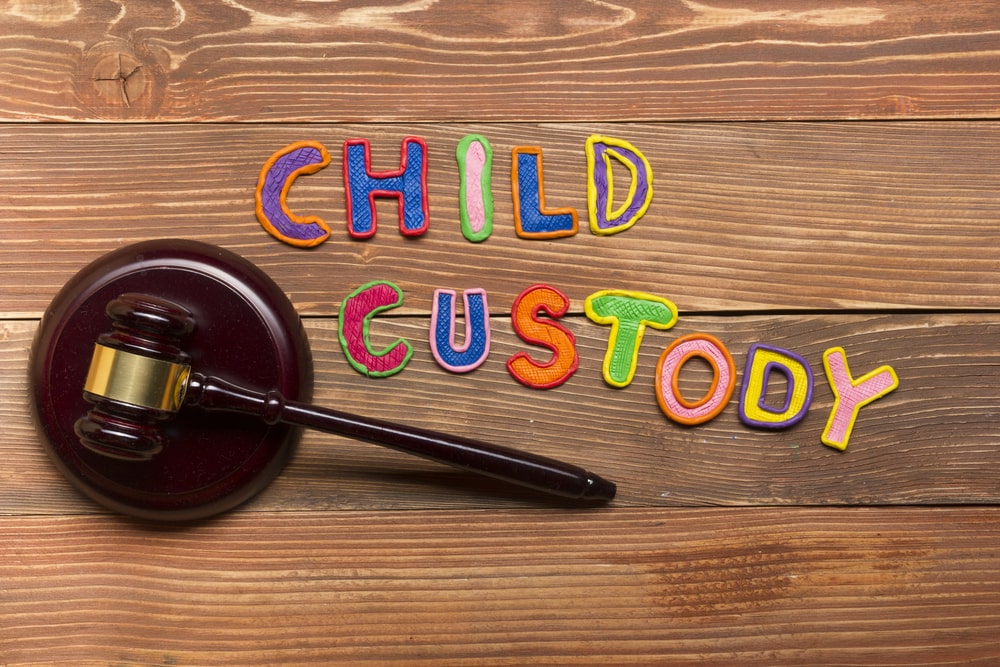When parents decide to separate or divorce, their children’s well-being quickly becomes a top priority. One question that often arises during custody proceedings is whether a child’s preference can influence which parent they will live with. While many believe a child’s wishes should carry significant weight, the reality is more nuanced. Courts strive to balance a child’s expressed desires with what they determine to be in the child’s best interests. Attorneys like those at The Spagnola Law Firm can attest that each case is unique and depends on multiple factors, including the age and maturity of the child. Considering Age And Maturity Family courts generally give more weight to a child’s preference as they get older. For instance, a teenager’s expressed wishes might be taken seriously, especially if they can clearly explain their reasons for preferring one parent. A younger child’s choice, however, may not carry the same influence because courts often question whether the child understands the long-term consequences of their decision. The maturity of the child is equally important. Judges will consider whether the child can articulate reasonable and consistent preferences rather than decisions swayed by fleeting emotions or promises of leniency from a parent. A mature child who thoughtfully explains why they feel more secure or supported with one parent may have a more persuasive voice in the courtroom. Ensuring The Preference Is Voluntary Another critical element is whether the child’s preference is freely given. Courts look for signs of coercion or manipulation by either parent. If
One of the most common questions custody lawyers are asked is “Can my child choose which parent to live with?” While a child’s preference may be considered in custody cases–particularly as the child gets older–it is never the deciding factor under Nebraska law. In fact, it is a widely believed myth that children have the final say on which parent to live with. In reality, even if the child is older and expressing strong preferences, children do not have the right to choose their residence until they have reached the age of majority (which varies by state and is 19-years-old in Nebraska). When Are The Child’s Preferences Considered? Nebraska Judges may consider a child’s opinion as one piece of the larger custody puzzle, but this is done carefully and within context. Judges are cautious about giving too much weight to a child’s preference, especially if there is evidence that a child has been pressured, manipulated, or influenced by one or both of the parents. The child’s preference may only be considered if the Court determines the child is of sufficient maturity and has sound reasons for preferring one home. The Court must also balance the Constitutional rights of each parent to parent their child along with the child’s rights and interests. Parents do not have to be perfect to stand on their rights to see and make decisions for their child. Best Interests Of The Child The “best interests of the child” standard in Nebraska is specifically defined by statute
Nebraska Step-parent Adoption: A Guide To The Process This Nebraska step-parent adoption guide is designed to provide a straightforward overview of what stepparents should know when considering adoption, including the steps involved and the key factors that can impact the process. Adoption can be a beautiful way to help families make their legal status match the emotional connection between a stepparent and the minor child/ren involved. Adoptions are some of our favorite cases at Gordon Law – learn more about our approach below and schedule your strategy session with us to learn more today by calling us at 402-817-1450 or email at [email protected]. What Is Stepparent Adoption? A step-parent is a person who is married to one of the biological/legal parents of a child. Once a stepparent adoption takes place, one of the biological/legal parents of the child’s rights and responsibilities fully transfer to the adopting step-parent. After the legal process is complete and a Decree of Adoption is entered, the adopting step-parent would have the rights to make decisions and see the child as well as the responsibilities to provide parental care and support (including financial support) the same as if the child had been born to that step-parent and his or her spouse. Sometimes, the natural parent was never involved in the child’s life at any point. Sometimes, circumstances have changed such that it is necessary or desirable to have a step-parent take over the role of a natural parent. The law governing step-parent adoption seeks to protect
Did you know that it is not possible to “contest a divorce” in Nebraska? That’s right – in 100% of filed cases the divorce itself is “uncontested” because the law does not allow for contested divorces as a Lincoln, NE uncontested divorce lawyer can explain. Nebraska is a “no-fault” state for divorce. This means if one person wants a divorce, the divorce will be granted. This means that if one party behaved badly in the marriage, such as cheating (sexually or emotionally), hiding money, being abusive, etc. – those bad behaviors or “faults” are not really part of the judge’s decision-making process and typically have no effect on the outcome. You may have heard people talk about their divorce nightmares where they could not agree with their spouse about any issue – from the house to the holidays with the kids to who gets the credit card rewards points. Those are all issues that can come up within a divorce case that might be contested or tried to the Court. Issues in a divorce can include (but are not limited to): premarital property, gift or inheritance, settlement monies, real property, credit card debt or rewards points, airline miles, business ownership interests, tools and equipment, tax debts and returns, spousal support, insurance coverage, home repairs during proceedings, medical expenses, holiday time with children, school and daycare enrollment, medical decision making, farm leases, retirement loans, individual education plans for children, pet custody, transportation and extracurricular activities, personal property division, vehicles, and many
Adoption is a significant step for many families, and while it can be rewarding, it also requires thoughtful preparation and understanding of legal responsibilities. Attorneys like those at Kantrowitz, Goldhamer & Graifman, P.C. can attest that entering the adoption process with a clear perspective can save families time, stress, and confusion. Below are some key points to consider as you embark on this journey. Legal Requirements Vary By State Adoption laws differ depending on where you live, and each state has its own regulations and procedures. From residency requirements to necessary background checks, it is important to familiarize yourself with the specific laws in your state. This also applies to international adoptions, which bring another layer of consideration as you work through both domestic and foreign legal systems. Parental Rights Must Be Addressed A divorce lawyer understands that one of the most critical steps in any adoption is terminating biological parental rights. This can be done voluntarily, or in some cases, the court may determine it necessary to terminate these rights involuntarily. Either way, this process ensures the adopting family can move forward without legal complications later. Financial Aspects Need Attention Adoption involves financial considerations beyond initial legal fees. Prospective parents should prepare for home studies, court costs, travel expenses, and in some cases, medical costs for the birth parent. Some states also allow for adoptive families to assist with living expenses for the birth mother, though these costs must comply with state laws. Types Of Adoption Affect The Process
Dividing assets during a divorce is one of the most significant and often contentious aspects of the process. Many people wonder if it’s possible for one party to come out of the divorce with more assets than the other. The answer largely depends on the laws of the state, the circumstances of the marriage, and the details of the divorce agreement. Our friends at GordenLaw, LLC detail how people who are divorcing can distribute their assets, below. Community Property Versus Equitable Distribution The state where the divorce is filed plays a crucial role in determining how assets are divided. States generally follow one of two systems: community property or equitable distribution. In community property states, all assets and debts acquired during the marriage are typically split evenly between the two parties. This system assumes that both spouses equally contributed to the marriage, regardless of who earned more or managed specific finances. In equitable distribution states, the division is not necessarily equal but is intended to be fair. Courts consider several factors, such as the length of the marriage, each spouse’s contributions, and future earning potential, to determine what constitutes a fair split. Factors That Can Lead To Unequal Asset Distribution In certain cases, one party may receive more assets than the other. Divorce lawyers can make this happen for either party. Here are some common factors that can lead to this outcome: Prenuptial Or Postnuptial Agreements: If a couple has a legally binding agreement in place that outlines how assets
Child Custody Issues Child custody disputes are often one of the most challenging aspects of divorce or separation. These situations require thoughtful decision-making and a focus on what is best for the child. Parents facing such disputes have several legal options to resolve their issues, each with its own benefits and considerations. Filing For Custody Through The Court System One of the most common legal options is filing a custody petition with the family court. In this process, both parents present their case before a judge, who makes a custody determination based on the child’s best interests. Factors such as the child’s age, emotional needs, the parents’ living situations, and their ability to provide a stable environment are typically considered. This route may be necessary if parents cannot agree on custody terms. However, it can be time-consuming and emotionally taxing. Parents must be prepared to present evidence and possibly participate in hearings or evaluations to support their position. Using Mediation To Reach Agreements Mediation is a valuable option for parents seeking an amicable resolution. It involves working with a neutral third party to facilitate discussions and help both parents reach a mutually agreeable custody arrangement. This process encourages cooperation and often results in a quicker resolution compared to court litigation. Mediation is particularly beneficial when both parents want to maintain a positive co-parenting relationship. It allows them to create a tailored child custody plan that works for their family, avoiding the adversarial nature of courtroom battles. A child custody lawyer
Going through a separation can be a challenging experience. Whether you’re considering divorce or have already made the decision to split, understanding the legal process is crucial to ensure your rights are protected and your future is secure. Learn about the basics of the legal separation process and how working with a knowledgeable divorce lawyer will deliver the best outcome possible in your case. Initial Decision To Separate The first step in the process is deciding whether you want to separate. This can be an emotional time, and it’s essential to understand that the legal process might take time. Take the time to consider what’s best for you and your family. If you have children, their needs will also play a significant role in the decisions you make. Consulting With An Attorney Once you’ve made the decision to separate, it’s advisable to consult with a lawyer who specializes in family law. An experienced attorney can provide clarity on your rights, help you understand the options available to you, and guide you through the legal aspects of separation. To protect your best interests, you should retain counsel before moving forward in any other aspect of your separation. Filing A Petition For Separation To make the separation official, you may need to file a legal petition for separation with the court. This petition outlines your desire to live separately and establishes how you want to handle key issues like child custody, division of property, and spousal support. Your attorney can help prepare
Mediation Attorneys Mediation attorneys provide an alternative to courtroom litigation by helping clients resolve disputes in a collaborative and efficient manner. This approach is often faster and less adversarial than traditional legal proceedings, making it an appealing choice for many types of conflicts. Below are some of the common cases where attorneys play an essential role. Divorce And Family Law Disputes Divorce and family law matters are among the most frequent cases handled by a Mediation Attorney. Mediation offers a structured environment where spouses can work through issues such as property division, spousal support, and child custody arrangements. This process allows both parties to have input in crafting agreements that work for their unique situations. Child custody and visitation disputes are particularly well-suited for mediation. The process encourages parents to focus on the best interests of their children while fostering a cooperative approach to co-parenting. Workplace Conflicts Employment disputes are another area where mediation attorneys are often involved. Common workplace issues include conflicts between employees, disagreements over employment contracts, and claims of discrimination or harassment. Mediation allows employers and employees to address these concerns privately and avoid the expense and public exposure of litigation. Through facilitated discussions, mediation attorneys help both parties reach agreements that preserve professional relationships while addressing the root causes of the dispute. This approach is particularly valuable in cases where both parties wish to continue working together after the resolution. Business And Contract Disputes Businesses often turn to mediation when conflicts arise over contracts, partnerships, or
National Adoption Day, celebrated in November, is a collective effort to raise awareness about the thousands of children in foster care who are waiting for a permanent family. It’s a day that brings families, courts, and advocates together to finalize adoptions and celebrate the joy that adoption brings to both children and parents. According to our Lincoln, NE adoption lawyer, many families choose to finalize their adoptions on this day as part of the national movement to ensure every child has a loving home. This special day occurs the Saturday before Thanksgiving each year. Local celebrations in Nebraska cities often occur throughout November. Lancaster County Juvenile Court is celebrating Adoption Day November 16, 2024. GordenLaw is proud to have been a part of several adoption stories over the past 13 years with our BBB A+ rating thanks to satisfied customers. As this holiday approaches, it’s an excellent time to reflect on the importance of adoption and the legal processes involved. Adoption can be a wonderful choice to grow a family and provide loving support and permanency for children needing the same. At its core, adoption is when adults take on all the rights and responsibilities for a child just as if they had biologically created or given birth to that child. Adoption can occur through a private arrangement between birthparents and adoptive ones who may or may not be related to the child, or through an agency. Step-parents legally married to a birthparent sometimes adopt. Foster parents may adopt children












